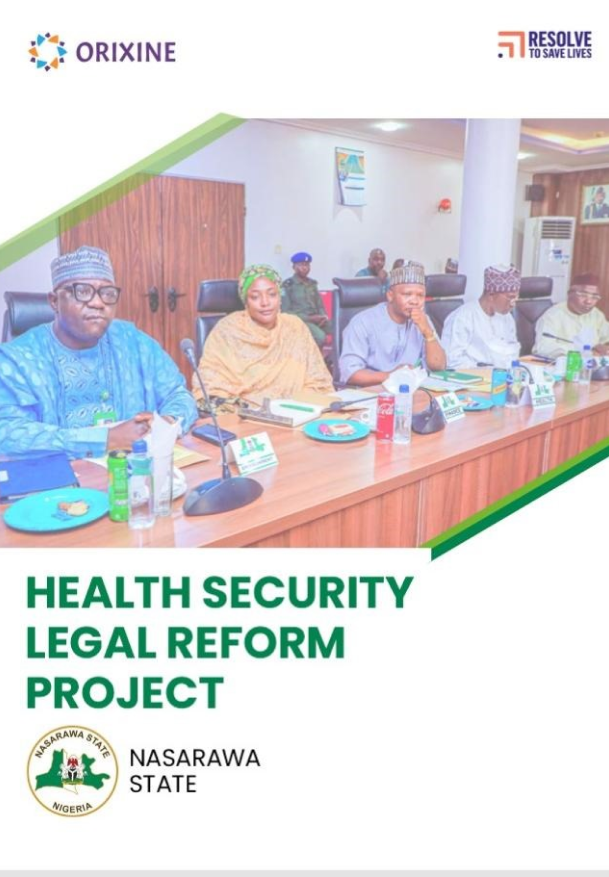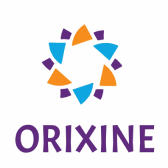
Strengthening Health Security
On June 13, 2024, Orixine Consulting, in partnership with Resolve to Save Lives (RTSL), held a pivotal engagement meeting with Civil Society Organizations (CSOs) in Nasarawa State to advance the state’s public health legal reform efforts. Hosted at Awa Diamond Hotel, Lafia, the meeting convened key CSO representatives, legal experts, and government officials to discuss strategies for implementing a comprehensive health security bill. This bill aims to align with the International Health Regulations (IHR) 2005 and strengthen Nasarawa’s capacity to prevent and respond to health crises effectively.
The event began with Barrister Akpan Aniekan’s welcome address, highlighting the meeting’s significance in mobilising collective action to improve the public health framework. Barr. Aniekan underscored Orixine’s role in driving this project and emphasised the importance of CSO involvement in creating a responsive and locally tailored health security law. He further emphasized the critical need for a coordinated, multi-sectoral approach to tackle existing legislative gaps and implement IHR-compliant policies.
Following the introduction, Barr. Emem Udoh from RTSL delivered the first presentation, titled “Strengthening the Subnational Public Health Legal Framework for Pandemic Preparedness and Response.” Barr. Udoh outlined the essential role of IHR in shaping health laws and the need for domestic legislation that facilitates epidemic preparedness.
He presented insights from the Joint External Evaluation (JEE) of Nigeria’s health systems, which highlighted significant gaps in policies, resource allocation, and the need for effective Monitoring & Evaluation (M&E) frameworks. In the discussion, participants raised key concerns, including the need for more streamlined funding and enhanced political commitment, highlighting the importance of CSOs in securing local support.
Barr. Justina Allu, the legal adviser from the Ministry of Health/Justice, presented on the legal reform and law-making process in Nasarawa State, detailing how the IHR provides a unified framework for health security. She stressed the role of CSOs in shaping laws that resonate with community needs.
In response, CSO representatives emphasised the importance of adapting policies to the local context, with a strong focus on grassroots health challenges and communication.
The meeting also addressed stakeholder engagement strategies essential for passing the health security bill. Key insights included the importance of personalised, one-on-one engagements due to the scheduling challenges many stakeholders face.
Participants proposed leveraging existing forums, such as local government meetings, for broader reach and suggested that courtesy visits to key stakeholders, including the Deputy Governor, would ensure alignment and support for the reform process.
A plenary session, led by Barr. Aniekan, explored practical strategies for advocating the new public health security bill. Participants underscored the need to engage diverse stakeholders such as security agencies, religious and traditional leaders, and women’s groups. They noted the influential role of religious leaders in disseminating information and shaping public opinion on health issues. Media platforms, particularly radio, were highlighted as vital tools for raising public awareness about the bill and keeping policymakers informed.
The CSO representatives expressed a strong commitment to collaborating with government agencies and legislative bodies to ensure the proposed bill reflects the needs and priorities of Nasarawa’s citizens. They agreed that consistent advocacy through media engagement, courtesy visits, and town hall meetings would sustain public and political support, even with potential political distractions such as the 2025 gubernatorial election.
Barr Justina closed the session by appreciating the participants’ contributions and recognizing the value of Orixine’s partnership with RTSL in advancing legal reforms in Nasarawa State. The CSO engagement meeting marked a vital step toward establishing a resilient, locally informed health security framework, with CSOs playing a central role in shaping and advocating for sustainable public health laws.

